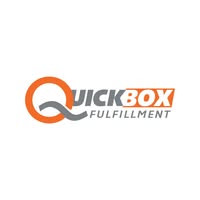Top 3PL Companies in Collin County
Last Updated: October 2025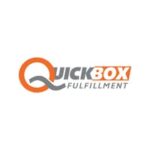
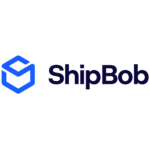

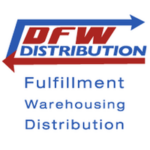

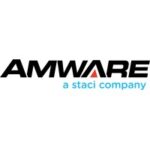




We will connect you with a 3PL based on requirements, and product-fit.
Request QuotesWhat Is a 3PL?
A third party logistics (3PL) provider is an expert logistics services firm, or company specializing in managing critical supply chain management tasks such as inventory storage, fulfillment services, order processing, distribution services, transportation, and value‑added activities. Companies located in Collin County—home to McKinney, Plano, and Allen—can simplify operations by outsourcing to a trusted logistics partner who handles warehousing, technology integration, inventory management, and last-mile delivery—allowing businesses to focus on core growth, cost control, and customer satisfaction.
A 3PL company can also create value for customers, employees, and stakeholders by delivering innovative solutions and supporting business success.
Benefits of Using a 3PL in Collin County
Strategic Location Near Dallas and Logistics Hubs
Collin County lies within easy reach of Dallas/Fort Worth—home to major highways, rail yards, and Dallas Fort Worth International Airport. 3PL providers leverage this location to efficiently serve Texas markets, as well as expansions into Arizona, California, Arkansas, and Alabama, lowering transportation costs and transit times.
Advanced Inventory Management & Warehouse Automation
Top providers apply warehouse management systems and real‑time technology to optimize warehouse space, reduce errors, and improve accuracy. This ensures precise order picking, faster replenishment, and superior inventory visibility—driving efficiency, lowering costs, and boosting customer satisfaction.
Scalable Fulfillment and Distribution Services
From startup DTC brands to enterprise-level companies, Collin County 3PLs offer flexible plans that scale with your needs: from light, same-day order fulfillment to multi-modal distribution services, outsourcing package solutions including packaging customization, kitting, and last-mile delivery.
Value Added Services to Support Growth
Long-term partnerships rely on 3PLs that offer value added services like labeling, customized packaging, returns handling, and bundling to match brand needs and maintain competitive edge, acting as an extension of the customer’s brand. These services boost brand perception, loyalty, and repeat orders.
Data-Driven Supply Chain Management
Performance reporting and dashboards let providers monitor KPIs—order accuracy, on-time delivery, cost per order, and warehouse throughput—creating a data-driven logistics environment for proactive optimization.
Flexible Transportation and Carrier Agility
Providers facilitate LTL, full truckload, airborne, or intermodal transport across Texas, California, Arizona, and Arkansas—enabling adaptability to seasonal peaks, new markets, and evolving distribution flows.
Commitment to Customer-Centric Operations
Collin County 3PLs prioritize customer satisfaction—combining clear communication, real-time tracking, and dedicated team support to ensure brands meet consumer expectations and business goals.
Cost Efficiency Through Outsourcing
By partnering with a logistics specialist, companies reduce overhead on labor, real estate, transportation, and technology. Volume-based consolidated shipping and shared infrastructure drive down overall cost, maximizing ROI.
What Type of Companies Use a 3PL in Collin County?
E-commerce & Direct-to-Consumer Brands
Online-first businesses use 3PLs to manage inventory, handle high order volumes, and integrate easily with platforms like Shopify or Amazon.
Retailers and Multi-channel Businesses
Retail brands and wholesalers operate omni-channel fulfillment through distribution services—sending stock to stores or shipping directly to consumers.
Manufacturing & Industrial Distributors
Companies manufacturing electronics, automotive parts, or industrial goods use Collin County 3PLs for raw material staging, inventory management, and outbound distribution.
Startups and Growth-Stage Firms
Early-stage businesses benefit from customizable services and low-risk growth plans without capital investment in warehouses or staff.
Seasonal & Promotional Businesses
Holiday or promotional products require flexible fulfillment capacity—helping meet surges while avoiding long-term fixed costs.
Multi-State or Nationwide Sellers
Firms shipping to Arkansas, California, Arizona, or Alabama use Collin County hubs for cross-region distribution and retail market coverage.
Things to Look for in a 3PL Provider
Advanced Technology & Inventory Controls
Robust WMS, barcode scanning, cycle counting, and real-time dashboards are critical for inventory accuracy and logistics efficiency.
Scalable Warehouse Space & Fulfillment Flexibility
3PLs should have adaptable lines—able to allocate warehouse space, assembly zones, and cross-dock docks based on client volume.
Transport Network & Regional Expertise
Choose providers with connections to major carriers and transit lanes between Dallas, Texas markets, and other target regions like California, Phoenix (as a key logistics hub in Arizona), and beyond.
Dedicated Teams and Account Management
Look for providers that assign account managers and warehouse teams to each client—ensuring efficient communication and responsiveness.
Value Added Offerings
Anything from co‑packing and custom packaging to labeling, subscription box assembly, and return logistics should be available to enhance competitiveness.
Reputation, Certification & Excellence
Industry certifications (like ISO or SSAE-18), repeat business, and testimonials demonstrate a logistics provider’s operational reliability and forward-thinking culture.
Transparent Cost Models
Providers should offer clear, tiered pricing for warehousing, fulfillment, “pick & pack,” transportation, and value-added services—allowing scalable predictability.
Security & Compliance Standards
Look for secure facilities, climate control, background checks, and regulatory compliance for sectors like food, medical, and industrial goods.
How to Choose the Right 3PL Provider
Define Business and Growth Objectives
Start with goals: faster fulfillment, geographic expansion, lower costs, or improved efficiency. Clear objectives narrow provider options effectively. Understanding your core logistics priorities—whether it’s reducing operational costs, entering new markets like Collin County, or increasing customer satisfaction through same-day delivery—will help align your search with 3PL providers that specialize in those specific outcomes. Defining your long-term growth trajectory and order volume forecasts also ensures your chosen partner can scale with your business.
Conduct Facility Tours and System Demos
Visit Collin County warehouses to assess space, automation, security, and staff workflows—and request tech demos for real-time system access. Touring facilities firsthand allows you to inspect their infrastructure, from racking layouts and inventory control systems to security checkpoints and employee engagement. Prospective clients can also call our main office phone number to schedule a tour or request a demo. This gives you insight into the provider’s ability to handle fluctuations in demand, ensure compliance, and integrate seamlessly with your in-house platforms.
Review Pricing and Service Structures
Ask for detailed quotes for receiving, storage, picks, transportation, packaging, and special handling—ensuring transparent cost-benefit analysis. A well-structured cost proposal should include unit-based pricing, bundled service options, surcharges, and volume-based discounts. Be sure to request pricing across different fulfillment tiers and service types so you can compare scenarios based on projected usage. This enables accurate forecasting and helps your finance and procurement teams calculate true logistics spend.
Launch a Pilot Program
Run a low-risk test batch to evaluate picking accuracy, shipping speed, product protection, and system reliability before scaling. A pilot program helps validate key performance indicators and reveals how the 3PL provider handles real-world order workflows. Monitor cycle times, returns, damage rates, and communication responsiveness. Use this controlled environment to test order management system compatibility, fulfillment accuracy, and the ability to meet service-level agreements across different product lines or customer regions.
Evaluate Cultural and Strategic Alignment
Meet senior leadership, account teams, and warehouse managers to assess responsiveness, client focus, and shared values. Compatibility in mission, transparency, and team communication ensures smoother operations over time. Company culture plays a crucial role in long-term success and employee satisfaction within a 3PL provider. Prospective employees looking to join the organization should explore the career opportunities available, including various roles that may be posted on the company’s careers page. Each position will have specific requirements that candidates must meet to qualify. Employees are rewarded for their contributions through recognition programs, benefits, and advancement prospects, allowing them to build a meaningful and fulfilling career within the company. A people-first culture results in more consistent performance, lower turnover, and better long-term service for clients.
Measure ROI and Performance
Track metrics like cost per order, inventory accuracy, delivery speed, and customer satisfaction. Use results to guide scaling decisions. A strong 3PL provider will offer monthly or quarterly reports detailing KPIs across your entire supply chain. Analyze metrics such as warehouse dwell times, on-time delivery rates, and system uptime to determine operational strengths and areas for improvement. These insights allow you to adjust volume, renegotiate terms, or expand services confidently, ensuring that your 3PL continues to meet your business objectives as you grow.
